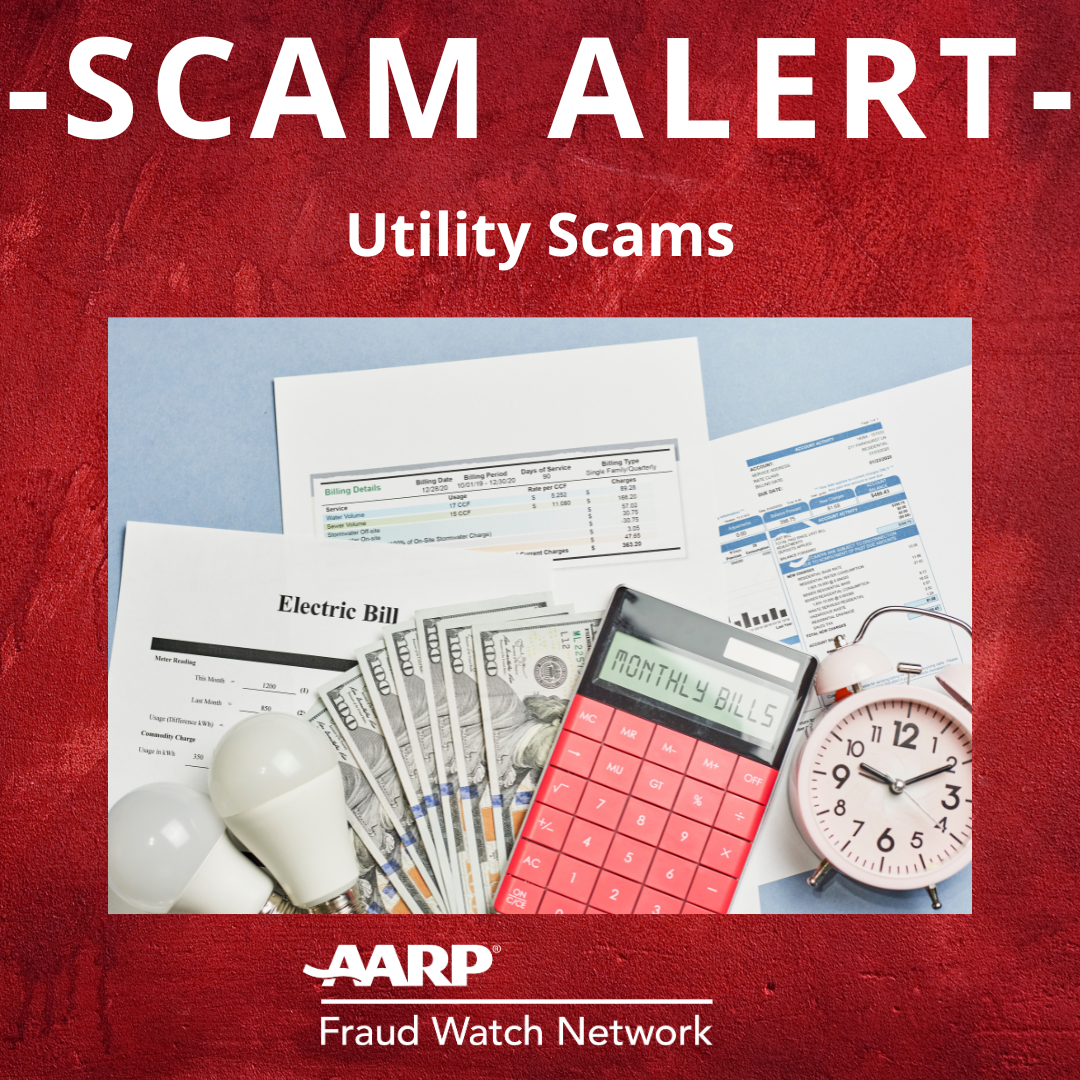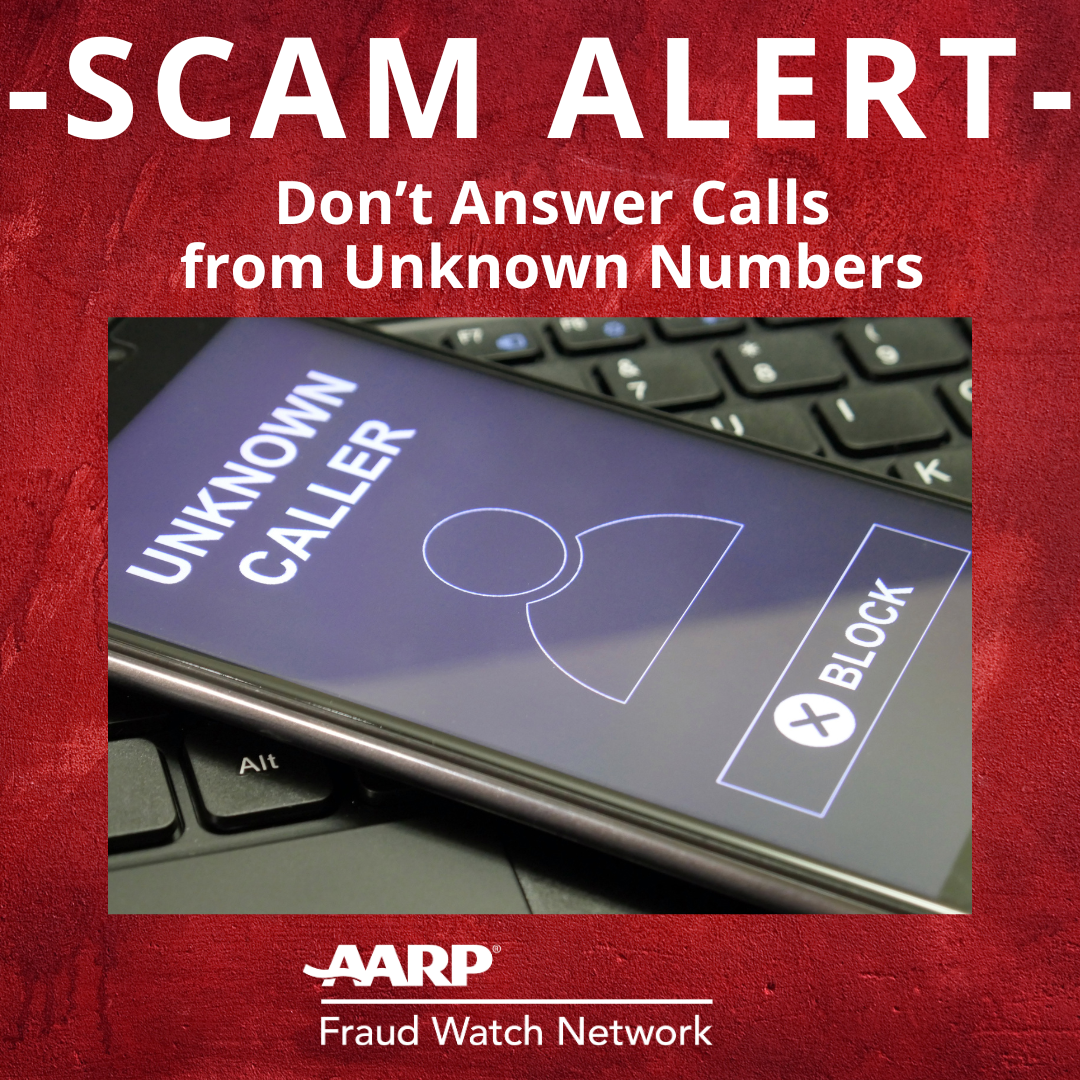AARP Hearing Center
Scammers are criminals. The best way to stop a scam is to spot the red flags!
Credit Repair Scams
Social Media Ad Scams
Utility Scams
Concert Ticket Scams
Unknown Number? Don't Answer!

Credit Repair Scams
MORE RESOURCES
Overwhelmed by holiday bills? You’re not alone — and you don’t have to face your debt alone either. The New Year is the perfect time to take control of your finances — but beware of criminal scammers offering quick fixes that are too good to be true.
Scammers often exploit financial stress by promising quick results to become debt-free. These schemes typically involve up-front fees, bad advice like avoiding your creditors, or vague claims about what services they actually provide.
Before committing to a debt relief service and providing your sensitive personal information, research reviews and check for complaints with organizations like the Better Business Bureau to ensure their credibility. If you need help getting out of debt, turn to an organization like the Nonprofit National Foundation for Credit Counseling.

Social Media Ad Scams
MORE RESOURCES
Over one-third of U.S. adults who have bought something through an ad on their social media feed report being defrauded, according to a new AARP survey. Don’t let scammers ad-vertise their way into your wallet this new year; here are three tips to stay ahead of social media shopping scams.
1. Don't click on the ad. If the ad appears to be from a known retailer, type the address into your browser or use the retailer’s app. Scammers can impersonate legitimate retailers, and clicking on the ad could bring you to a copycat site.
2. Read reviews and research. If the ad is from a retailer you’re unfamiliar with, verify the site’s legitimacy. Research the company and check for complaints with organizations like the Better Business Bureau.
3. Check the product quality. Be wary of bait-and-switch scams where you receive a product inferior to what was advertised (or you receive nothing at all). If this happens, you can contact your credit card company to dispute the charge.

Utility Scams
MORE RESOURCES
With temperatures dropping, scammers are turning up the heat on their deceptive tactics. Each winter, criminals pose as utility company representatives, claiming a missed payment and threatening to shut off service unless payment is immediate.
If you get a surprise call from the “utility company” threatening to shut off your service, hang up the phone. The goal of these scammers is to create a sense of panic, making it harder to think logically and verify their claims. Their hope is that we stay in that state of panic long enough to complete a payment.
To verify the status of your utility payments, contact your provider using the customer service number on a recent bill (or log into their website or app if that’s an option). Chances are you will find out your payments are up to date.

Concert Ticket Scams
MORE RESOURCES
Getting tickets to top concerts is tough – don’t let scammers make it harder. With most concert venues switching to digital tickets only and concert demand through the roof, criminals are producing more counterfeit tickets than ever. Here are three tips to avoid buying a fake ticket.
1) Stick to known ticket sales sites or visit the National Association of Ticket Brokers (natb.org) to ensure that you are dealing with a verified reseller. Always type the web address of the site you want to visit into your browser rather than clicking on a link that could take you to a copycat site.
2) Beware of offers on social media and online marketplaces, where this scam thrives. These platforms are a hotspot for fraudulent ticket sales.
3) Never pay with a peer-to-peer payment app unless you are getting tickets from someone you know. You don’t have the same consumer protections with these payment methods that you have with a credit card.

Unknown Number? Don't Answer!
Receiving a call from an unknown number may seem harmless, but it could be the start a scam. Criminals are using increasingly sophisticated tactics to deceive you into revealing personal information or making payments. Here are three tips to protect yourself from unknown callers.
1. Let it ring. The easiest thing to do is not answer the call. If it is important, the caller will leave a message or call back again.
2. Let the caller speak first. Most scammers use an auto dialer – an automated system that calls a bunch of random numbers at the same time and connects to a live person when someone answers the phone. That brief pause or delay before the caller speaks is a red flag that the call could be a scam.
3. Block suspicious calls. Check with your service provider to learn about options to block spam and scam calls.
_____________________________________________________
Be a fraud fighter! If you can spot a scam, you can stop a scam.
Report scams to local law enforcement. For help from AARP, call 877-908-3360 or visit the AARP Fraud Watch Network at www.aarp.org/fraudwatchnetwork































































